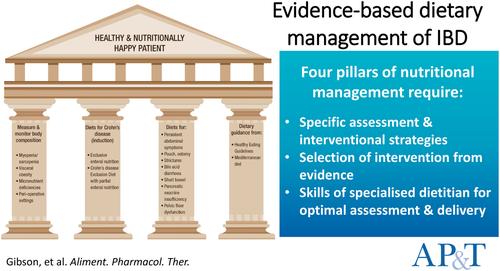当前位置:
X-MOL 学术
›
Aliment. Pharm. Ther.
›
论文详情
Our official English website, www.x-mol.net, welcomes your
feedback! (Note: you will need to create a separate account there.)
Review article: Evidence-based dietary management of inflammatory bowel disease
Alimentary Pharmacology & Therapeutics ( IF 6.6 ) Pub Date : 2024-08-20 , DOI: 10.1111/apt.18214 Peter R Gibson 1 , C K Yao 1 , Emma P Halmos 1
Alimentary Pharmacology & Therapeutics ( IF 6.6 ) Pub Date : 2024-08-20 , DOI: 10.1111/apt.18214 Peter R Gibson 1 , C K Yao 1 , Emma P Halmos 1
Affiliation

|
Dietary management of patients with inflammatory bowel disease (IBD) involves more than defining a therapeutic diet. The profusion of ‘expert advice’ is not necessarily built on evidence.
中文翻译:

综述文章: 炎症性肠病的循证饮食管理
炎症性肠病 (IBD) 患者的饮食管理涉及的不仅仅是定义治疗性饮食。大量的“专家建议”不一定建立在证据之上。
更新日期:2024-08-20
中文翻译:

综述文章: 炎症性肠病的循证饮食管理
炎症性肠病 (IBD) 患者的饮食管理涉及的不仅仅是定义治疗性饮食。大量的“专家建议”不一定建立在证据之上。































 京公网安备 11010802027423号
京公网安备 11010802027423号